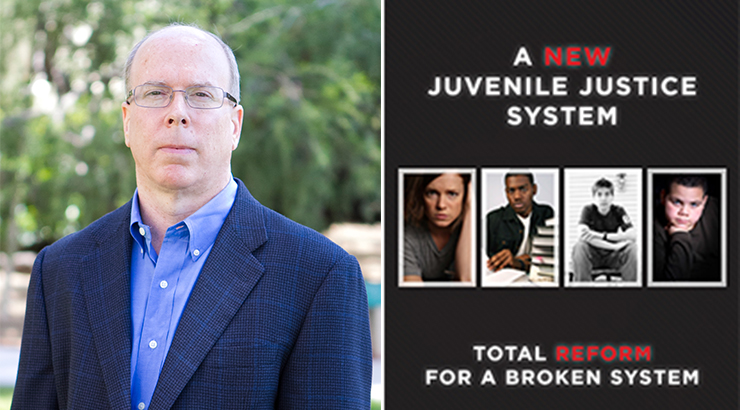
Fowler Law Professor Richard Redding Publishes “Lost in Translation No More: Marketing Evidence-Based Policies for Reducing Juvenile Crime”
June 22, 2016
Dr. Richard Redding – Chapman University Dale E. Fowler School of Law Professor and Vice Chancellor for Graduate Education at Chapman University – recently published a book chapter on “
Lost in Translation No More: Marketing Evidence-Based Policies for Reducing Juvenile Crime
” in
A New Juvenile Justice: Total Reform for a Broken System
(NYU Press 2015).
From the abstract:
Even though effective evidence-based juvenile offender rehabilitation programs have been available for twenty years, such programs are underutilized and frequently misperceived as too ineffective, costly, and lenient because they fail to satisfy society’s retributive need to punish offenders. But the public, policy makers, prosecutors, and judges will support and utilize evidence-based programs when apparent conflicts between the demand for evidence-based programs, concerns about program effectiveness and costs, and the felt need for punishment are reconciled. This chapter outlines how this can be accomplished by using evidence-based persuasion strategies to effectively communicate the compatibility of these three goals.
Dr. Richard Redding
currently serves as the Vice Chancellor for Graduate Education at Chapman University, where he is the current holder of the Wang-Fradkin Chair, the highest honor Chapman can bestow on a faculty member for exceptional merit in scholarly or creative activity. Previously, he served as the Associate Dean for Academic Affairs and Associate Dean for Administration at the Fowler School of Law. Dr. Redding specializes in forensic issues in criminal law; juvenile justice; the use of social science research in law and public policy; the role of sociopolitical attitudes in diversity, and interpersonal and professional functioning; and the ways in which social and political attitudes influence how science is used in policy making. His work in these areas is both theoretical (or policy-oriented) and empirical. Dr. Redding has published over 75 articles and book chapters in leading legal and peer-reviewed scientific journals, including these publications on Juvenile Justice: “One Size Does Not Fit All: The Deterrent Effect of Transferring Juveniles to Criminal Court,”
J. of
Criminology & Pub. Pol’y
(in press); “Knowledgeable Judges Make a Difference: Judicial Beliefs Affect Juvenile Court Transfer Decisions,” 62
Juvenile & Family Court J.
15 (2011); “Evidence-Based Sentencing: The
Science
of Sentencing Policy and Practice,” 1
Chapman J. of Criminal Justice,
19 (2009); “Juvenile Transfer Laws: An Effective Deterrent to Delinquency?,”
Juvenile Justice Bulletin (U.S. Dept. of Justice 2008); “Training the Parents of Juvenile Offenders: State of the Art and Recommendations for Service Delivery,” 17
J. of Child & Family Studies
629-648 (2008); Juvenile Delinquency: Prevention, Assessment, and Intervention (K. Heilbrun, N. Goldstein, & R. Redding eds.
2005); “
Multicultural Perspectives on Delinquency Among African-American Youth: Etiology and Intervention,” in Comprehensive Handbook of Multicultural School Psychology 710 (C. Frisby & C. Reynolds eds. 2005).

